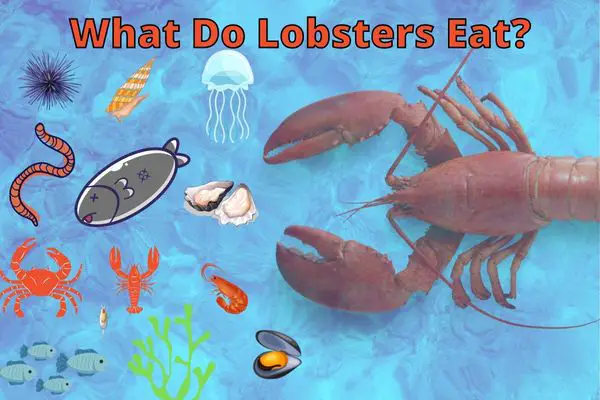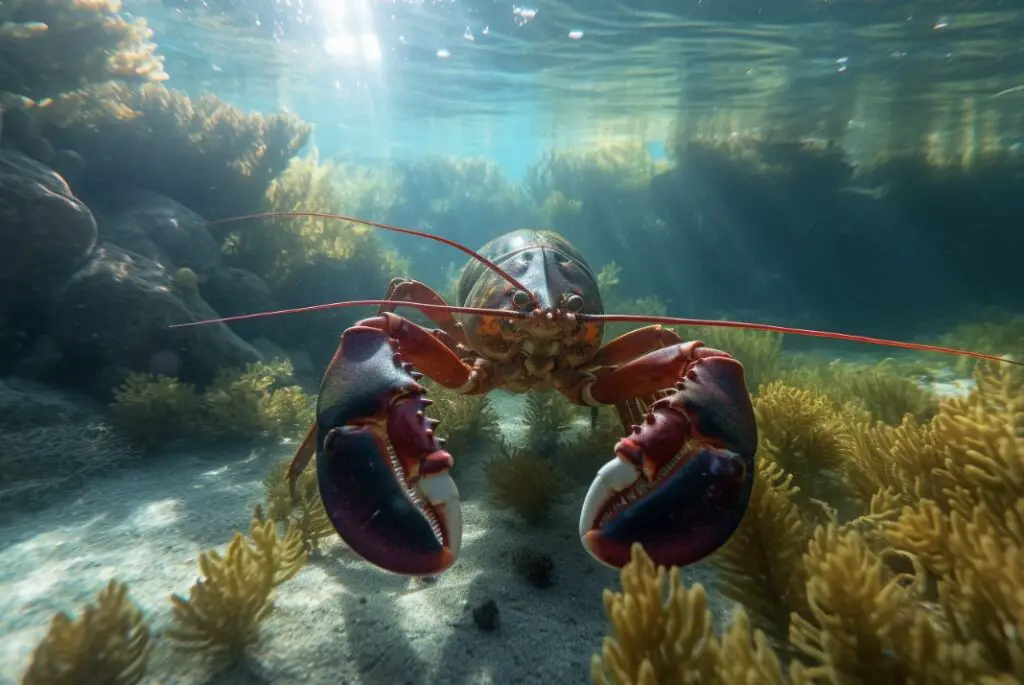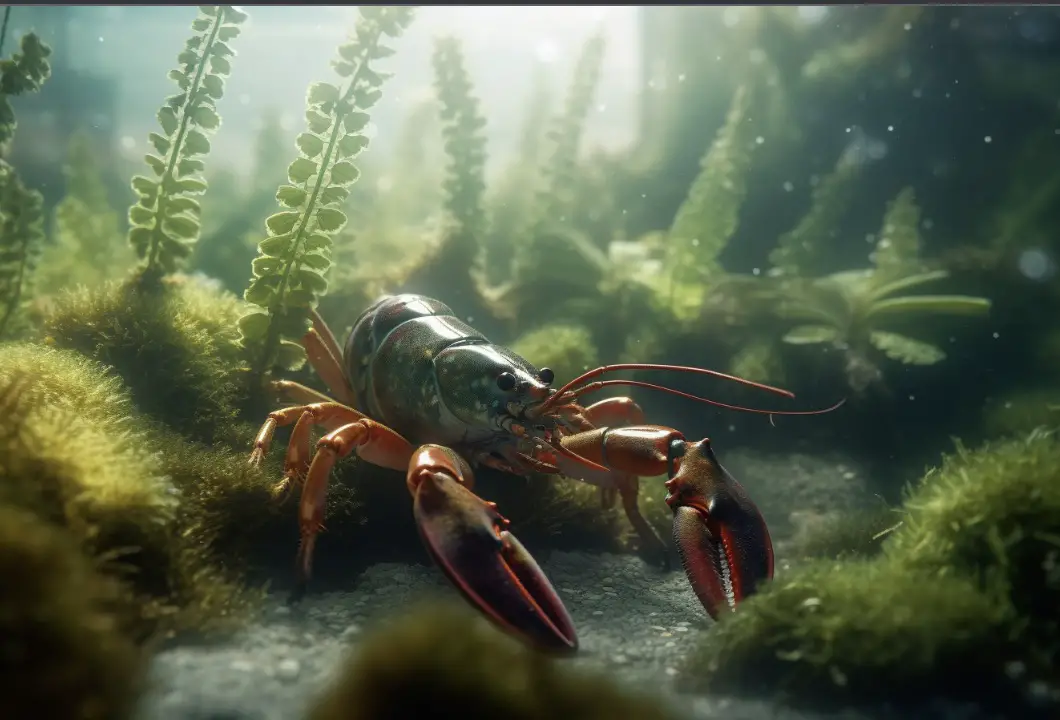Lobsters are fascinating creatures that have captured the attention of humans for centuries. Not only are they considered a delicacy by many, but their unique biology and behavior make them an interesting subject for scientific study.
One of the most common questions about lobsters is whether they are herbivores, meaning they primarily eat plants and plant-based foods.
Lobsters are not herbivores; they are omnivores, which means they eat both plant and animal matter.
In this blog post, we will explore the diet of lobsters, their hunting and feeding behaviors, and their role in the ecosystem.
The Diet of Lobsters: What Do They Eat?
Lobsters are opportunistic feeders, meaning they will eat a wide variety of food sources depending on what is available. Their diet consists of a mix of plant and animal matter, including:
- Algae
- Seaweed
- Fish
- Mollusks (such as clams and mussels)
- Crustaceans (including other lobsters)
This varied diet allows lobsters to adapt to different environments and food sources, making them resilient and successful as a species.

Lobsters as Scavengers
Lobsters are also known to be scavengers, meaning they will eat dead animals that they come across on the ocean floor.
This behavior is important for the ecosystem, as it helps to recycle nutrients and clean up the environment. Scavenging is also a useful survival strategy for lobsters, as it allows them to find food when other sources may be scarce.
Lobster Hunting and Feeding Behaviors
Lobsters are primarily nocturnal, meaning they are most active during the night. This is when they venture out of their hiding places to search for food, using their excellent sense of smell to locate potential prey. Lobsters are also equipped with strong claws, which they use to catch and crush their food.

The Role of Lobsters in Their Ecosystem
As omnivores, lobsters play a vital role in maintaining the balance of their ecosystem. By consuming a wide variety of food sources, they help to control populations of other species and prevent any one species from becoming too dominant. Additionally, their scavenging behavior contributes to the overall health of the environment by recycling nutrients and cleaning up dead organisms.

The Lifecycle of a Lobster: How Their Diet Changes With Age
A lobster’s diet changes throughout its life, with juveniles typically consuming more plant matter than adults. As lobsters grow and mature, they gradually shift their diet to include more animal-based foods. This change in diet is likely due to the increased energy and nutrient requirements of larger lobsters, as well as the need to develop strong, healthy shells.
Lobster Mating and Reproduction: The Impact on Diet
During the mating season, male lobsters may become more aggressive and territorial. This can lead to increased competition for food resources, as well as the need to consume more energy-rich foods in order to maintain strength and stamina.
Female lobsters, on the other hand, may experience a decrease in food intake during the mating season and while carrying eggs, as their energy is focused on reproduction rather than foraging.
Human Impact on Lobsters: Fishing and Climate Change
Lobsters are an important food source for humans, and their populations have been impacted by overfishing in some areas. This can disrupt the balance of the ecosystem and lead to a decline in the overall health of the marine environment. Climate change is another factor that may impact lobster populations, as rising ocean temperatures can alter their habitats and food sources.
Sustainable Lobster Fishing: Protecting Lobster Populations
To ensure the long-term health and survival of lobster populations, it is important to practice sustainable fishing methods. This includes setting limits on catch sizes and fishing seasons, as well as implementing measures to protect lobster habitats. By protecting lobster populations and their ecosystems, we can help to preserve these fascinating creatures for future generations to enjoy.
Conclusion: Lobsters Are Omnivores, Not Herbivores
To recap, lobsters are not herbivores; they are omnivores that consume a varied diet consisting of both plant and animal matter. This dietary flexibility allows lobsters to adapt to different environments and food sources, making them resilient and successful as a species. Here are 10 facts about lobsters and their diets:
1. Lobsters are omnivores, meaning they eat both plant and animal matter.
2. Their diet includes algae, seaweed, fish, mollusks, and crustaceans.
3. Lobsters are opportunistic feeders and will eat a wide variety of food sources depending on availability.
4. They are also scavengers, consuming dead animals they find on the ocean floor.
5. Lobsters are nocturnal hunters, searching for food primarily at night.
6. Their diet changes as they age, with juveniles consuming more plant matter than adults.
7. Mating and reproduction can impact a lobster’s diet, with males becoming more aggressive and territorial.
8. Overfishing and climate change can negatively impact lobster populations and their ecosystems.
9. Sustainable fishing practices are essential for protecting lobster populations and their habitats.
10. Lobsters play a vital role in maintaining the balance of their ecosystem through their varied diet and scavenging behavior.
By understanding the complex dietary habits of lobsters, we can better appreciate their role in the ecosystem and work to protect their populations for future generations.
FAQs
Are fish herbivores?
Not all fish are herbivores, but some species are.
Are crabs omnivores or herbivores?
Crabs are omnivores, meaning they eat both plants and animals.
What is a crab in the food chain?
A crab is a secondary consumer in the food chain, meaning it eats primary consumers such as small fish and plankton, and is then eaten by tertiary consumers such as larger fish and sea birds.
Is a lobster a producer herbivore or carnivore?
A lobster is a carnivore.
Are lobsters meat eaters?
Yes, lobsters are meat eaters. They primarily feed on fish, mollusks, and crustaceans.
Is A crab A herbivore?
No, a crab is not a herbivore. Most crabs are omnivores, meaning they eat both plants and animals, while some are carnivores, meaning they primarily eat other animals.




